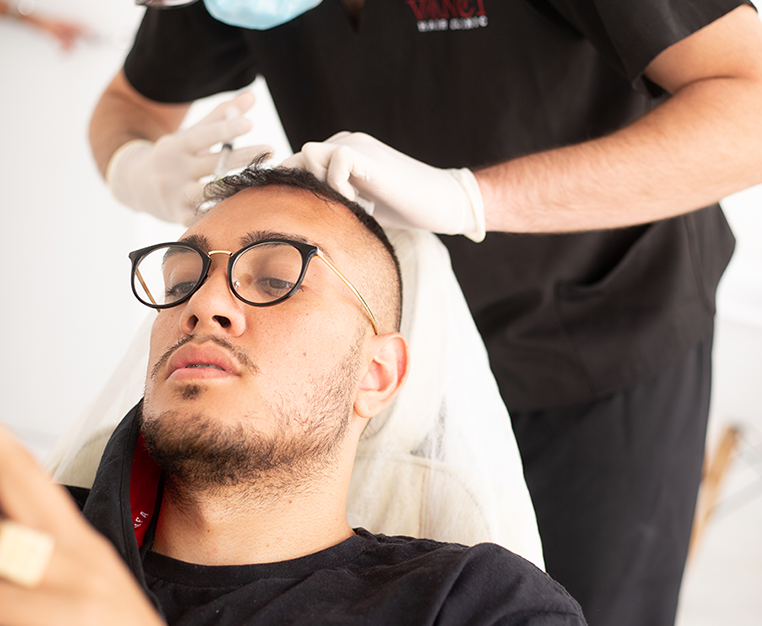When American runner Lindsay Walter lines up to race in the Berlin Marathon in September, she’ll probably attract more glances from spectators than most of the other runners. As a woman with alopecia universalis, it’s something the thirty-one-year-old athlete has become accustomed to. She’s had the condition all her life. While it hasn’t always been easy, she has come to terms with her condition and now uses her experiences to inspire young people going through the same thing.
This article will examine how Lindsay and others have faced up to alopecia and overcome the challenges it has put before them. Scroll down to find out more.
What is Alopecia Universalis?
Alopecia universalis is an advanced form of alopecia areata which causes the individual to lose all their body hair, including that on the face and head. It is an autoimmune disorder, meaning that healthy cells in the body are attacked by a person’s own immune system. While alopecia is quite common, alopecia universalis is comparatively rare. Symptoms can appear at any stage in life, including childhood. It is a condition that can cast a shadow over the lives of the child and the adults around them.
The Impact on Children
Lindsay Walter lost her hair while still a young child. She experienced bullying at school and found that she had few people, outside her own family, to turn to for support. It was something that made her more of an introverted character than she would otherwise have been. It was running that changed things for her. Her acceptance by the running community gave her confidence in her own strength and fitness. It restored her self-esteem. For almost the first time in her life, she was seen by others for her talent as an athlete rather than for her baldness.
Matt Lucas
British-German actor and comedian Matt Lucas is someone else who lost his hair and eyebrows as a child. Doctors initially blamed the trauma of being hit by a car at the age of four for his alopecia, an explanation Matt accepted for many years. He had reached adulthood by the time another doctor suggested that the real cause might be linked to the chronic asthma, eczema and various allergies that had always troubled him. In short, he had an overactive immune system.
Like Lindsay Walter, Matt had a tough childhood because of his baldness. Despite that, he managed to come to terms with it and assimilate it into his personality. Today, he can see that his condition has had some positive impacts on his life, particularly in his professional life. He believes it has contributed to his success as an actor and comedian. Most important of all, he can see that he is recognised for what he does and who he is, rather than being defined by his alopecia universalis.
Pierluigi Collina
Top soccer referee Pierluigi Collina developed alopecia universalis when he was twenty-four. He lost every hair on his head, face and body within a two-week period. Despite that, he is renowned for being the greatest soccer referee in the history of the sport rather than for his distinctive bald head. That’s the way he likes it. He is proud that his achievements are what people remember and not his alopecia, something he regards as a serious condition. He once stormed off an Italian TV show because the hosts began making jokes about it.
Collina once wrote to a young alopecia sufferer who was having a bad time and advised him to ignore the people who were calling him names. These people, Collina told him, were simply jealous of someone who could achieve things, with or without hair. Be yourself, was his message, and be proud.
Common Thread
While the stories of these three individuals differ in many ways, they also share a common theme. The theme is that all three have been able to define who they are rather than allowing their condition to be what they are known for. It is an important lesson and one that is not restricted to celebrities. Whether you have a famous face or live in obscurity, it is important that you are recognised for who you are and what you do, not simply for your alopecia.
Conclusion
Lindsay Walter now hosts a site called Lindsay’s Little Pals that offers support to kids who have lost their hair. She hopes that she can use her experience and understanding to youngsters who find themselves facing a similar set of circumstances. There can be little doubt that, like Matt Lucas and Pierluigi Collina, her achievements are an inspiration to many.
If you’re concerned about hair loss, Vinci Hair Clinic can help. We are one of the largest hair restoration organisations in the world with clinics all over the globe. Our new clients get a free, no-obligation consultation right off the bat. All you have to do is get in touch and make the appointment!



